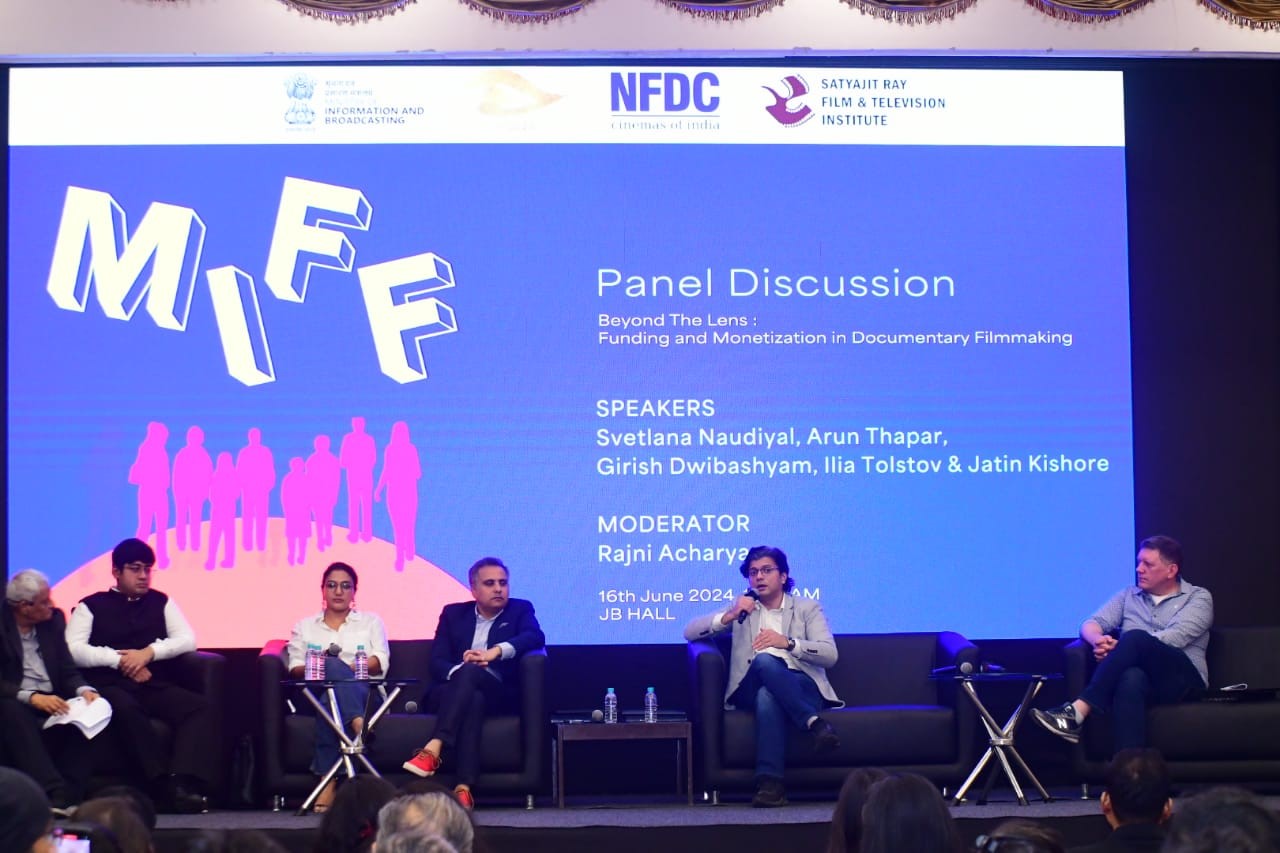The 18th Mumbai International Film Festival for Documentary, Short Fiction, and Animation Films hosted a compelling panel discussion today on the topic “Beyond The Lens: Funding and Monetization in Documentary Filmmaking.” This engaging session delved into innovative methods for financing and profiting from documentary productions, offering valuable insights for filmmakers seeking to bring their stories to life.
The session commenced with Jatin Kishore, IAS, Director, Department of Information & Public Relations in Jammu & Kashmir, who highlighted the region’s new film policy aimed at promoting Jammu & Kashmir as a premier filmmaking destination. “We are offering a maximum subsidy of 1.5 crore with special provisions for documentaries, short fiction, and animation films.”, he stated. Additionally, he noted that their single window system will streamline the process for filmmakers to obtain necessary permissions to shoot in Jammu & Kashmir. Jatin Kishore also announced the Jammu & Kashmir administration’s plan to establish a corpus fund to support budding filmmakers.

(In Photo: A Panel discussion on ‘Beyond The Lens: Funding and Monetization in Documentary Filmmaking’ in progress at 18th MIFF)
Svetlana Naudiyal, Programming Director for the Asia-Pacific region at MUBI, emphasized the evolving landscape of documentaries. She stated that documentaries have come a long way but acknowledged that there is still much progress to be made. Naudiyal explained that at MUBI, they prioritize high-quality content without differentiating between feature and non-feature films.
Arun Thapar, Senior Media Executive and President of Content & Communication at Network18, highlighted the dual role of documentarians as both artists and journalists. He noted that the documentary space has undergone a rebranding, giving rise to factual entertainment. Thapar remarked that documentarians play a crucial role in society, though their journey is not an easy one. He advised that for documentaries to achieve financial success, they must be tailored to meet market demands. “ The festival circuit offers a valuable platform for promoting films before pitching them to streaming platforms. Crowdsourcing is also a viable funding option,” Thapar noted. He further stressed the importance of public broadcast services and government support, drawing parallels with the US market.
Girish Dwibhashyam, Chief Operating Officer, DocuBay, shared insights on approaching streaming platforms. He emphasized that documentary filmmakers must ensure their topics appeal to a broader audience. Dwibhashyam stated that well-researched content with pan-Indian or global appeal is essential. He explained that at DocuBay, they balance their portfolio with content from both experienced players and young filmmakers. “While international awards can boost promotion, they are not a prerequisite for recognition. A good story with solid research can stand out on its own,” he added.
Ilia Tolstov, Founder of Film Moscow, discussed the growing opportunities in the Russian market. Though the western content once dominated globally, Ilia Tolstov said that now the scenario is changing, and the movie industry in Russia is expanding. “There are numerous film festivals in Russia, making it an opportune time for filmmakers to enter the Russian market.” He affirmed that they are open to co-production ideas and eager to support filmmakers, noting that Indian movies are highly rated in Russia.
The session was moderated by Rajni Acharya, Lifeographer and founder of Takshila Multimedia, who underscored the inherent risks in documentary filmmaking. “The success ratio for documentaries is around 10%, and filmmakers must be prepared for a 90% risk. The biggest challenge faced by any documentary filmmaker is funding,” Acharya concluded.
 Matribhumi Samachar English
Matribhumi Samachar English


